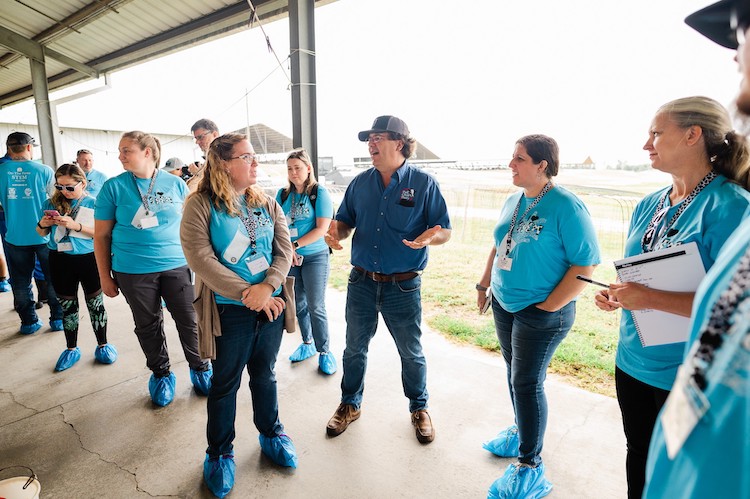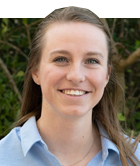
There, educational professionals are able to see how farmers use practices in the areas of science, technology, engineering, and math. Concisely referred to as STEM, these disciplines have gained more and more attention in schools in recent years as teachers look to prepare students for their future careers. When those who build science curriculum and those who teach it have first-hand experience of applicable science in the form of agriculture, it helps them develop useful lessons while dairy farmers benefit from building personal connections with educators — who are also parents, grandparents, community leaders, and more.
The “On the Farm STEM” program is funded by the National Dairy Council and Midwest Dairy, and it was created in partnership with the American Farm Bureau Foundation for Agriculture. It is geared toward high school-level teachers and leaders who will influence classes such as biology and other life sciences. Farm visits began in 2022 in Minnesota by hosting educators from around the country and Puerto Rico. This year, visits are covering states including Florida, Oregon, Washington, and Michigan, with more planned for 2024.
Giving teachers tools and an experience to share a realistic picture of dairy farming with their students fights back against anti-animal agriculture misinformation while giving students a different perspective on agriculture careers. When young people don’t have a connection with farming, they likely won’t realize the skills and abilities needed in today’s agricultural industry. Recognizing there is a place for science and technology in agriculture — an industry that affects every person every day — is exciting for students, report leaders of the program.
The National Dairy Council is also working on STEM curriculum itself that state and regional checkoff organizations can adapt to their local needs to share with educators. That builds on the work they are doing to build relationships with educational organizations like the National Science Teaching Association to bring awareness to the importance of agricultural content in this area. Curriculum work is one part of the checkoff’s new Fuel Up strategy, adapted from Fuel Up to Play 60 but an approach that will allow dairy farmers to utilize new channels and partnerships to reach school children through the dairy checkoff.
Dairy farmers know how impactful visiting a dairy farm can be for a consumer’s perspective. By giving teachers that opportunity, dairy’s story can be shared with every student who enters that educator’s classroom. That creates a person who is more informed when they go to the grocery store and hopefully more likely to choose dairy products in their diet. They might even be inspired to become part of the population that helps feed the world, too.

Katelyn Allen joined the Hoard’s Dairyman team as the Publications Editor in August 2019 and is now an associate editor. Katelyn is a 2019 graduate of Virginia Tech, where she majored in dairy science and minored in communication. Katelyn grew up on her family’s registered Holstein dairy, Glen-Toctin Farm, in Jefferson, Md.








